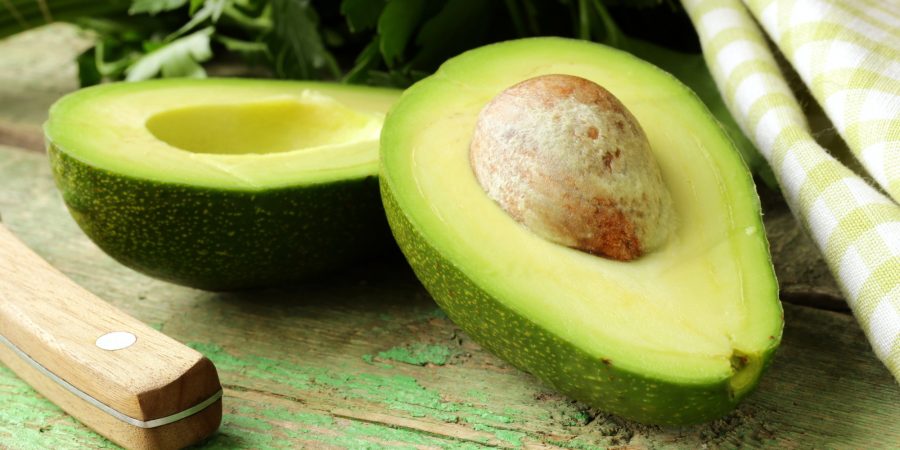Researchers at the University of Alabama at Birmingham found that people should eat more potassium-rich foods if they want to prevent suffering from heart diseases – like heart attacks and strokes. According to the study, this component helps the arteries to make them less hard, regulate people’s heartbeat, and it’s also beneficial for the muscles and kidneys.
In the study published Monday in the Journal of Clinic Investigations, scientists suggest a way to alleviate the heart condition. They said the hardening of the arteries is significantly correlated to a diet based on potassium. By eating more food rich in this nutrient, like bananas or avocados, people can avoid stiff arteries.
Millions of people around the world suffer from pathogenic vascular calcification, also known as hardening of the arteries – most after reaching a certain age. Some people who suffer from strokes don’t experience another one in a row again. However, there are other many who suffer consecutive strokes, forcing them to pay for really expensive treatments.

Heart disease costs the United States about $200 billion each year. This includes the cost of health care services, medications, and lost productivity.
“The findings have important translational potential,” said lead researcher Paul Sanders, from the University of Alabama at Birmingham. “Since they demonstrate the benefit of adequate potassium supplementation on prevention of vascular calcification in atherosclerosis-prone mice, and the adverse effect of low potassium intake.”
Heart diseases have been leading the causes of death in American women and men – of all races and ethnic groups – for a long time. In the web page of the Centers for Disease Control and Prevention, it says that heart conditions kill around 630,000 Americans each year, accounting for 1 in every four deaths. From that total, in 2015, more than half of the deceased were men. It also assured that a person has a heart attack every 40 seconds, and more than a person dies from a heart disease each minute.
Heart diseases have caused the majority of deaths in American people for around eighty years.
Coronary heart disease is the most common type of heart disease. In 2014, it killed about 365,000 people. According to the American College of Cardiology, over 616,000 people died of heart diseases in 2008. That same year, 405,309 people died from coronary heart disease.
Each year, about 785,000 Americans have their first coronary attack. From that total, 470,000 people suffer from consecutive attacks.
Mice with arteries less stiff
The University of Alabama researchers studied a mischief by giving them high-fat diets, in which the mice were fed with either small, average or large amounts of potassium. The scientists divided the total into three groups and gave them different levels of dietary potassium — 0.3 percent, 0.7 percent, and 2.1 percent weight/weight, respectively.
After they conclude the analysis, they noted that those mice who ate high doses of potassium had more flexible arteries than those who ate low amounts of the nutrient.
When people get old, their arteries often stiffen. However, this nutrient was believed to loosen them by a little. According to Paul Sander, the co-author of this study, their “findings have important translational potential.”
“Reduced dietary potassium intake has been linked to the pathogenesis of a variety of human diseases, including atherosclerosis, diabetes, and chronic kidney disease. All of these disease share common vascular complications, such as vascular calcification,” Yawing Chen, a researcher working on the study, said. “Vascular calcification is a risk factor that predicts adverse cardiovascular complications of several diseases including atherosclerosis.
Although this research gave great clues about prevention of heart diseases, only mice were studied. There’s still a lot of work to be done to prove this nutrient makes the arteries more flexible, as the WHO says.
People should eat more avocados and bananas
Avocados have become very known around the world due to its taste and many benefits. One of them is this nutrient that helps with heart diseases. This fruit contains around 708.1 mg of potassium, and also has antioxidants, vitamin E, B vitamins, and healthy fats.
On the other hand, sweet potatoes also contain good amounts of potassium. According to Tech Times, just a cup of these will give you 448 mg of the nutrient.
Additionally, raisins, coconut water, and spinach are also rich in potassium –containing around 600 mg, 575 mg, and 420 mg per cup, respectively. These also provide antioxidant resveratrol, zinc, calcium, iron, and magnesium.
The World Health Organization (WHO) recommends people to increase the intake of potassium-rich food to reduce blood pressure and decrease their chances of getting heart diseases. According to WHO, each person should eat at least 3500 mg of potassium daily. This, in food-terms, is not much. Just one banana has 425 mg of potassium, a cup of sliced avocado has 708 mg, and only half a cup of spinach contains 420 mg of the nutrient.
However, overeating potassium can cause stomach ache, nausea and diarrhea in people.
Source: AJC.com
